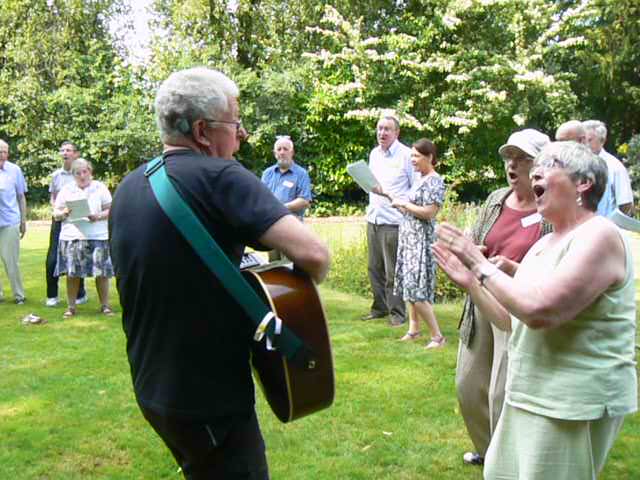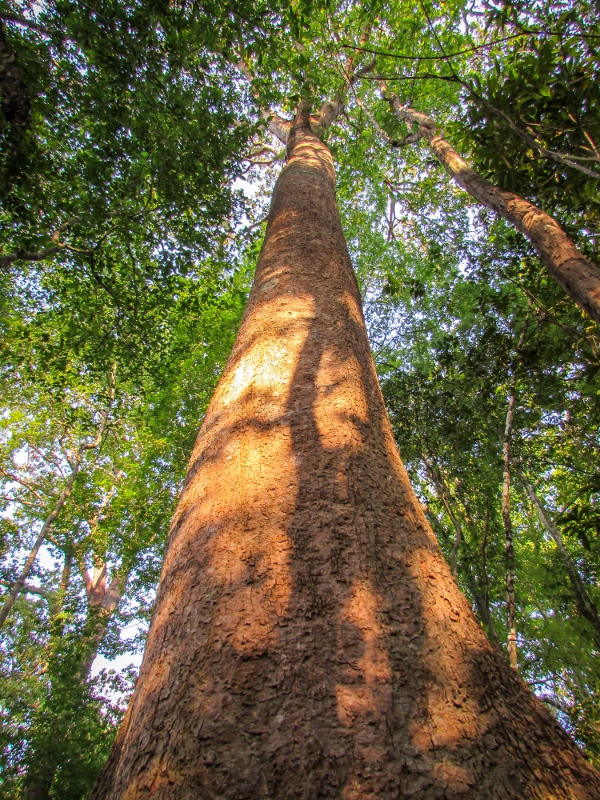Laudato Si’: generating enough energy to empower the world!
Susy Brouard is CAFOD’s Theological Advisor. Susy has twelve years experience of facilitating workshops on Catholic Social Teaching. But never has she come across a text which has produced so much energy from her participants. She explains why.

To be perfectly honest with you, Pope Francis’ latest encyclical, Laudato Si’, is a facilitator’s dream.
I say this as someone who has, during the last week, facilitated three different workshops on the encyclical. Each workshop – the first with CAFOD volunteers in Birmingham, the second at the CAFOD headquarters with staff, and the third with members of an Anglican Church in central London – filled the participants with energy and joy. In fact, the Birmingham volunteers took Pope Francis’ words of ’sing as you go’ to heart and ended their day of reflection by singing and dancing a conga in the garden!
So what is it about this encyclical that produces so much energy? This encyclical is unique because it is addressed to every citizen of the earth. Since he wants to communicate with everybody, Pope Francis writes with great clarity and directness. He tells it as it is – the good, the bad and the ugly. It is like looking in a mirror and we realise what madness it is that as humans we are systematically destroying “our common home”.
Liberating effect
While this may be seen as depressing, it is also liberating. We are confronted with what we have done and we can decide whether to continue as we are, or make changes to the way we live and consume. In the workshops, we spent time reflecting on the symptoms of overdevelopment which Pope Francis describes in the first chapter of his encyclical; climate change, mining, water pollution and global inequality, amongst others. From our reading, we came up with key elements that we thought were essential for progress; elements such as education, love, justice, understanding, mindfulness, sacrifice and, of course, God!
The Gospel of Creation
We then spent some time reading extracts from the second chapter of the encyclical, aptly titled ‘The Gospel of Creation’. The main themes which run through this chapter are the innate value of creatures and creation and how everything is interconnected. The participants spent some time outside in creation and brought back a symbol of their reflections from the garden to share with others.
Spiritual conversion
Chapters three and four of the encyclical explore both the roots of the ecological crisis and the solutions for renewal. Chapter five proposes some plans for action (personal, communal and international) and in the last chapter, Pope Francis states categorically that solutions can only be found through education and a spiritual conversion. So for me, the encyclical is meant not only to be read, but also to be prayed. Reading and re-reading it is like a slow process of discernment. It is poetic piece, and is meant to be read with our feelings as well at a rational, head level. For this reason, I ended a couple of the workshops with a Laudato Si’ litany, which is meant to be read slowly and prayerfully.
All need to pitch in

At the end of one of the workshops, I asked participants, drawing on all their reflections, to write a letter back to Francis (still to be decided whether these will sent!) One member of staff wrote:
“What now? Where do we go from here? I like that you don’t have all the answers, but you do have a hope that we’ll find those answers – if we all pitch in. It’s going to be a tough old road ahead, but it doesn’t leave me hopeless. That’s probably where we should start, with a sense of hope.”
Another participant was also left feeling hopeful. She wrote: “Your letter has ignited the light of hope within me. It has inspired me to seek ways to live a simple and fulfilling life by reconnecting me with home, which until recently, was just a faraway place in the Amazon forest. It reminded me of the things I love so much and want to protect.”
Challenges
But the encyclical is as challenging as it is inspiring and hopeful. We may feel happier thinking that Pope Francis is having a go at those on huge salaries who live lives of luxury, but the letter is in fact addressed to ALL of us. It may be tempting for those of us who support CAFOD to feel that we are doing enough, but in Laudato Si’ there is nowhere to hide. As one staff member said at the end of the workshop: “The encyclical offers huge challenges for us personally, and for CAFOD. These are challenges we need to grasp and not just give lip service to.”
I wish I could have bottled the energy which was present in the room at the end of the workshops. Pope Francis’ words touched, challenged and inspired all the participants. My hope is that his words will motivate us in the years to come “to live wisely, think deeply and love generously”.
How inspiring —something to reflect on – It’s a shame that Archbishop Malcolm McMahon doesn’t follow in the Pope’s footsteps about every one being equal and allowing the Passionists to return to St Helens where they can do more Good than Harm for the Community
Vic de costa
Susy, Thanks for a great day in Birmingham, a shame you missed the Conga! Kris